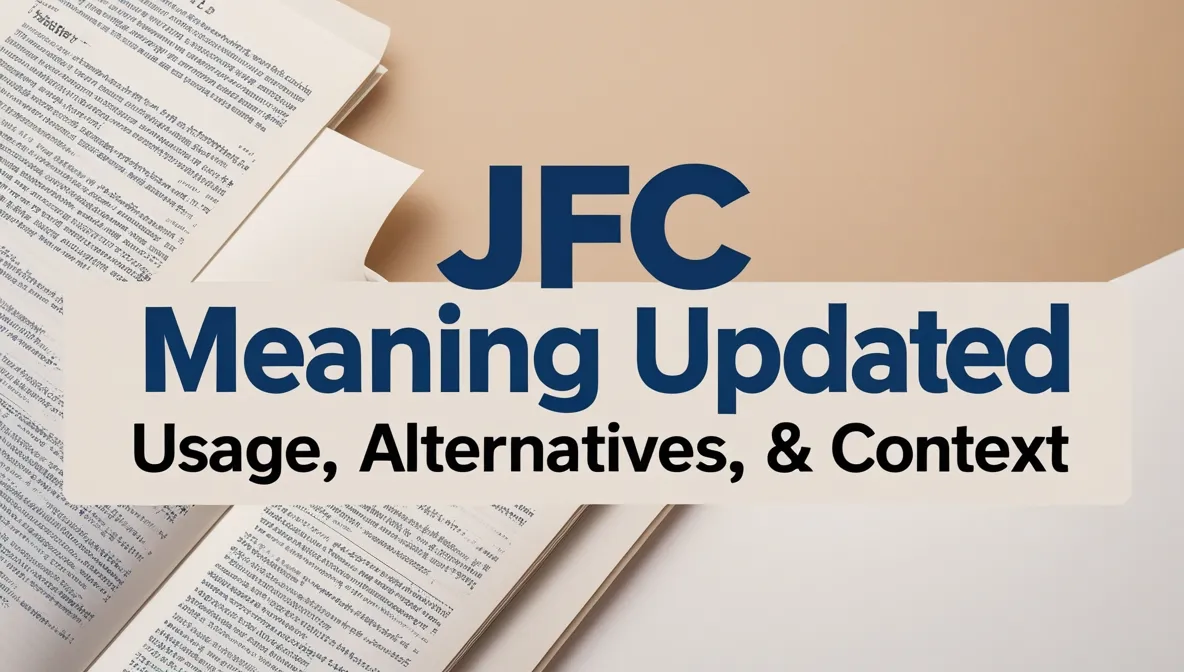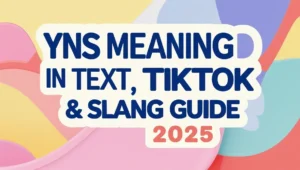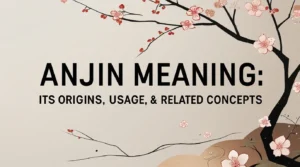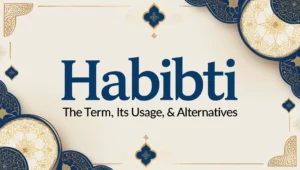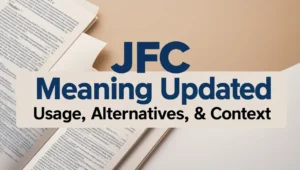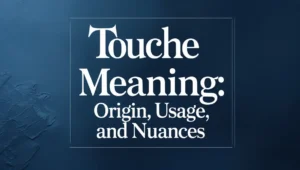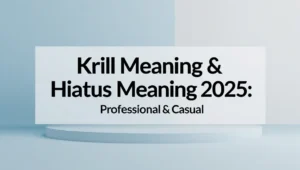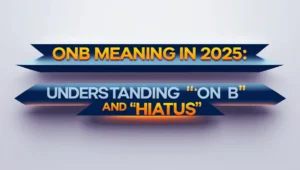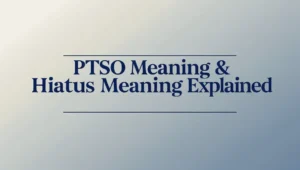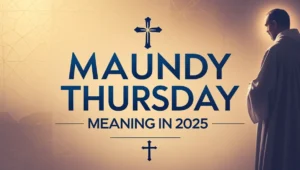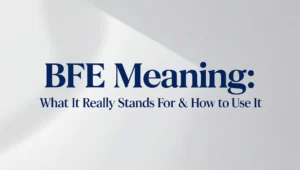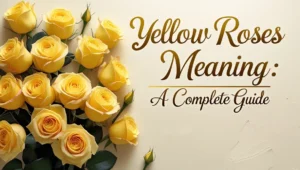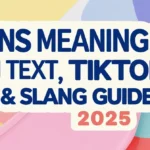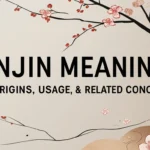In the fast-paced world of digital communication, understanding current slang is essential to stay connected and relevant. One abbreviation that continues to appear frequently in texts, social media, and online conversations is JFC. But what exactly is the JFC meaning updated for 2025, how is it used, and what alternatives exist? This article dives into the latest meaning of JFC, explores its common usage, and offers alternatives so you can communicate clearly and effectively in any digital setting this year.
What is the JFC Meaning in 2025?
The primary meaning of JFC in 2025 remains “Jesus F*ing Christ**.” This phrase is generally used as a strong exclamation expressing surprise, frustration, disbelief, or shock. Despite its roots as a religious reference, today it’s often just a way to convey intense emotion quickly in casual conversations.
Over time, language on the internet changes and adapts. While JFC holds onto its original meaning for many users, some communities have started using it more playfully or with less offense. Still, the phrase is recognized as profane and may be inappropriate in formal or sensitive settings.
How is JFC Used in 2025?
The JFC usage in 2025 mostly aligns with its traditional role as an exclamation. You’ll find it primarily in informal, casual digital spaces like social media platforms, text messaging, and online gaming chats. People often use it when they want to emphasize surprise or frustration quickly.
For example, you might see messages like:
- “JFC, that movie was insane!”
- “JFC, why is this software so buggy?”
- “JFC, I can’t believe I forgot my keys again!”
Because of its strong language, people tend to avoid using it in professional emails or conversations where it could offend.
Alternatives to JFC in 2025
If you prefer to avoid profanity or want a lighter expression, several alternatives convey similar feelings without the risk of offending others. Common substitutes include:
- OMG (Oh My God) – Probably the most popular and widely accepted.
- Geez – A mild, non-offensive way to express annoyance or surprise.
- Sheesh – Often used to show disbelief or frustration in a casual tone.
- Good grief – A classic, somewhat humorous alternative.
- WTF (What The F*)** – Still profane, but frequently used like JFC for shock or disbelief.
Choosing the right alternative depends on your audience and the setting in which you communicate.
Understanding the Context of JFC
Context plays a crucial role in when and how JFC is used. Here are some typical scenarios where you might encounter this slang in 2025:
- Social Media: People react quickly to shocking news or memes with JFC to express their feelings instantly.
- Gaming Communities: Frustrated players often use JFC after difficult challenges or unexpected game events.
- Texting with Friends: Casual conversations where strong emotions like surprise or irritation are shared freely.
- Online Forums: Users might include JFC when discussing controversial or surprising topics.
Because of its explicit language, using JFC in professional or formal settings is usually avoided to maintain respect and decorum.
JFC Compared to Other Internet Slang
There are many slang terms online, but JFC stands out for its intensity. Here’s a simple way to understand where JFC fits in comparison to other popular acronyms:
- JFC is strong, expressive, and profane, best suited for informal communication.
- OMG is more mild and broadly acceptable, often replacing JFC when profanity isn’t desired.
- WTF is similarly profane but more common in expressing disbelief.
- LOL (Laugh Out Loud) is lighthearted and positive, quite different in tone from JFC.
- SMH (Shaking My Head) expresses disappointment or disbelief, but in a calmer way.
Knowing these differences helps you pick the perfect acronym based on your audience and tone.
Why Knowing JFC Meaning is Important in 2025
As digital conversations continue to dominate communication, understanding terms like JFC is crucial. Knowing what it means and when to use it:
- Prevents misunderstandings or unintended offense.
- Helps you connect better with younger or internet-savvy groups.
- Enhances your digital literacy and makes your messaging clearer.
With slang evolving so quickly, staying informed about terms like JFC means you’re always ready to join the conversation confidently.
FAQs About JFC Meaning Updated (2025)
1. What does JFC stand for in texting? JFC usually means “Jesus F***ing Christ” and is used to express strong emotions like shock or frustration.
2. Is JFC considered offensive? Yes, because it contains profanity and a religious reference, it can offend some people, so use it carefully.
3. What are some polite alternatives to JFC? Alternatives like OMG, Geez, and Sheesh convey similar emotions but are more socially acceptable.
4. Where is JFC most commonly used? It’s often used in social media, gaming chats, and informal text messages among friends.
5. Should I use JFC in professional communication? No, it’s best to avoid JFC in formal or professional settings due to its explicit and potentially offensive nature.
Conclusion
The JFC meaning updated for 2025 remains rooted in expressing strong emotions quickly in informal digital settings. While it’s a powerful exclamation, its profane and religious nature means it’s best used with caution and awareness of your audience. If you prefer a softer approach, many alternatives allow you to express surprise or frustration without risking offense.
Understanding JFC and its proper use helps you stay fluent in the evolving language of the internet, ensuring you communicate effectively and respectfully. Whether you stick with JFC or choose a gentler alternative, you’ll be ready to navigate online conversations in 2025 with confidence.

